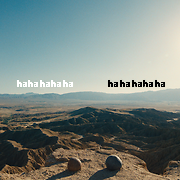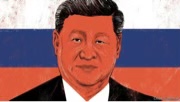- Adbot
-
ADBOT LOVES YOU
|

|
|
#
?
May 25, 2024 00:05
|
|
- indigi
- Jul 20, 2004
-

how can we not talk about family
when family's all that we got?
|
lol
|
 #
?
Jan 21, 2023 22:34
#
?
Jan 21, 2023 22:34
|
|
- stephenthinkpad
- Jan 2, 2020
-
|
Hell yeah
|
 #
?
Jan 21, 2023 23:28
#
?
Jan 21, 2023 23:28
|
|
- slave to my cravings
- Mar 1, 2007
-

Got my mind on doritos and doritos on my mind.
|
lol what did they think would happen
|
 #
?
Jan 21, 2023 23:51
#
?
Jan 21, 2023 23:51
|
|
- Eminent DNS
- May 28, 2007
-

|
A syq as a response to a quoted post, a great leap forward in forums cultural development
|
 #
?
Jan 22, 2023 05:27
#
?
Jan 22, 2023 05:27
|
|
- Eminent DNS
- May 28, 2007
-

|
Okay how about this
Whichever country puts a person on the moon next gets naming rights to the holiday
Fair??
|
 #
?
Jan 22, 2023 06:32
#
?
Jan 22, 2023 06:32
|
|
- Some Guy TT
- Aug 30, 2011
-

|
I did not reveal to in-laws that the lady made the two dishes in the same wok with the same sauce.
is this supposed to be evil why would that be evil
|
 #
?
Jan 22, 2023 06:40
#
?
Jan 22, 2023 06:40
|
|
- Some Guy TT
- Aug 30, 2011
-

|
Is there something more trustworthy or authoritative about a person who is white? In the early 90s, when my parents ran an after-school program in a highly competitive suburb of Southern California, they often debated hiring exclusively white teachers as a way to appeal to their predominately Asian-American customer base. I remember feeling baffled and indignant that they believed Asian faces didn't broadcast prestige the way a white face did.
Although casting white faces has become less prevalent among the Asian diaspora community, in remote parts of China, "face jobs" or "monkey jobs" are still common. Businesses can rent laowais—foreigners—to show up at parties, to masquerade as CEOs and doctors, even to act as emissaries of Obama.
Filmmaker David Borenstein, who made the New York Times Op-Doc "Rent-a-Foreigner in China," first went to the country as an anthropologist to research the massive housing developments that were being built in provincial western China. While he was there, he was often approached by agents in the rent-a-foreigner industry to participate in real-estate openings organized to lure potential buyers.
Borenstein's new film, Dream Empire, from which the NYT Op-Doc is excerpted, examines not only the rent-a-foreigner industry but also the political and cultural climate in China that allows these "international" spectacles to seem like valid demonstrations of prosperity and progress. While it is easy to focus on the surface-level absurdity of the phenomenon, the economic realities underneath the spectacle remain enormously complicated.
Earlier this week, I spoke to Borenstein over email about his film, and the precarious economic situation in China that has created the need for "white monkey gigs."
VICE: What is your new film about?
David Borenstein: Dream Empire, supported by Danish Film Institute and Sundance Institute, is a character-driven documentary about the rise and fall of a Chinese rural migrant named Yana. This story takes place within the Kafkaesque environment that was the Chinese building boom.
The story follows her from humble beginnings as an aspiring foreigner-agent. Later she becomes the owner of Chongqing's largest foreigner agency, turning ghost towns into boomtowns on the day that outsiders visit. The last third of the film takes place in the last year, where China's current economic troubles have pushed her to the brink of financial ruin.
The film pays close attention to the larger environment she inhabits, and takes periodic breaks from her story to investigate developers, homebuyers, security guards, and other players in China's real-estate system. The rent-a-foreigner phenomenon plays a role in the system, but it's only one small part. In this surreal world, brutality is always one step away from the absurd.
"People in the industry call these jobs 'white monkey gigs.' Probably sums it all up."
How did you get recruited for the jobs that you got? What were some of your jobs?
My first encounter with the rent-a-foreigner industry is something that's quite common for foreigners in China. A "foreigner agent" flagged me down while I was walking down the street. He later offered me gigs that mainly involved pretending to play instruments over backing tracks with other random foreigners. MCs at the events would often introduce us as "famous American bands."
I did a lot of gigs in my time in China. Probably the most absurd offer was when I was asked to be present at the opening of a new development complex as some sort of fake emissary of Obama. It was some half-baked plan where they wanted to suggest that the new development was so magnificent that it had even managed to catch Obama's attention. They were even planning on forging fake US State Department credentials.
How did it make you feel to be a foreigner for hire?
People in the industry call these jobs "white monkey gigs." Probably sums it all up.
"Ten years ago, when I first came to China, it was absurd. Talented, dedicated Chinese bands were getting no gigs, while foreigners were getting rich making a fool of themselves on stage playing air guitar."
Did you get the sense that the buyers were successfully duped into believing that the foreigners were who they claimed they were? Did they recognize on a certain level that it was all for show?
I found it interesting that the foreign acts were often brought on stage after authority made its presence felt. My New York Times Op-Doc, for example, shows foreign students strutting down a stage in their underwear, while an announcer introduces them as top-ten models. But what was perhaps the most interesting thing about this gig was what happened immediately before the performance. The party officials of the small town were introduced on stage one after another, and led the entire room in a powerful performance of the national anthem. I don't think it wise to discount the feeling of legitimacy that a ritual like that might transmit to the whole gig.
Luckily things are changing, at least in the big cities. Over the past few years, these kinds of gigs have become more and more of third- and fourth-tier city kind of thing. Nowadays many event companies in bigger Chinese cities are putting on events that involve local Chinese acts. Ten years ago, when I first came to China, it was absurd. Talented, dedicated Chinese bands were getting no gigs, while foreigners were getting rich making a fool of themselves on stage playing air guitar.
"It's Guy Debord's nightmare. Finance capitalism is boiled down to its raw essence—pure and unadulterated spectacle."
Can you describe some of these housing developments? After these fake boomtown days are staged, what happens?
Evan Osnos from the New Yorker wrote the book Age of Ambition to talk about this era of Chinese history. I think that name really does capture the feeling of this period. We went to new developments all over Sichuan Province, including some that were quite remote. The unifying theme of new development projects was grand ambition mixed with a dollop of utopianism. In our forthcoming film, Dream Empire , developments with names like "paradise," "utopia," and "heavenly" are everywhere.
To me, this era of Chinese history is about dreaming as wildly as one can and believing in the power of the human will to make dreams a reality—regardless of the difficulty. But of course when things don't go well, developers need a way to save face and find a way to sell properties. That's where these foreign shows come in. The shows will sweep into a pretty empty development, turning it into an absolute spectacle for the afternoon when speculators come in. Then when they leave it's remarkable how fast it reverts back. It's Guy Debord's nightmare. Finance capitalism is boiled down to its raw essence—pure and unadulterated spectacle.
How did the buyers respond after they bought the property? Did they live there?
There is a scene in the film that follows homebuyers who believe they purchased property in an "international boomtown." I don't want to spoil the scene, but it might be easy to guess that they weren't happy when they moved in.
But that group was mainly people who actually wanted to live in the area where they purchased their homes. In China, 70 percent of household wealth is in real estate. When this fact is combined with high levels of economic inequality, it means that the rich end up controlling most of the real estate in the country. This of course means many empty apartments.
As far as I can tell, many rich Chinese homeowners don't really care if their investment properties exist in unlivable, empty communities. They only care about the price, which still has not dropped much. Price drops might actually not be so bad in the long run—it would help so many young Chinese and rural Chinese obtain homes. They face the most expensive housing market relative to average salary in the world. Economists keep complaining that Chinese aren't consuming enough, but that's because they are spending their whole lives saving up to buy ludicrously expensive housing.
But a lot of what the Chinese government does makes sense if you consider what seems to me to be their main source of legitimacy: allowing rich Chinese to continue getting rich. People who own lots of real estate in China constantly tell me: "Yes, there is a bubble, but the government will never let it pop." It's a basic contract with the state. Last year when prices saw relatively minor drops, furious homeowners were smashing the windows of their own properties.
So governments both local and national work to protect wealth generated in financial bubbles at all costs. Legitimacy is on the line. Hence the various heavy-handed attempts to guide the market: suppressing discourse that negatively affects financial confidence, embellishing official statistics to report "healthy GDP growth of seven percent," and, for all of our enjoyment, having foreigners sing and dance in their underwear.
Essentially these companies are using white faces as masks of power and authority.
I know it sounds insane, but any discussion of rent-a-foreigners is necessarily a discussion of the nature of the spectacle, China's national identity, and the utter absurdity of modern finance capitalism. What good does it do to just point out the surface-level absurdity of rent-a-foreigners? The more rewarding discovery is to dive deep into the absurd, to take the absurd seriously, to see what the absurd means to the people perpetuating it. If you take this route you will come to a far more gratifying conclusion: Absurdity resides in the heart of many of the things that we perceive to be deadly serious.
|
 #
?
Jan 22, 2023 06:41
#
?
Jan 22, 2023 06:41
|
|
- Some Guy TT
- Aug 30, 2011
-

|
what if white privilege...but in a way that proves chinas bad (does bong rip)
|
 #
?
Jan 22, 2023 06:42
#
?
Jan 22, 2023 06:42
|
|
- Some Guy TT
- Aug 30, 2011
-

|
can you imagine living in a garbage culture that pays incompetent idiots to go on stage and express nonsense just to make capitalists feel good about themselves while actual talented people go jobless
now if youll excuse me i need to go record a ted talk about my brilliant transcendental experiences
|
 #
?
Jan 22, 2023 06:44
#
?
Jan 22, 2023 06:44
|
|
- mawarannahr
- May 21, 2019
-

|
Is there something more trustworthy or authoritative about a person who is white? In the early 90s, when my parents ran an after-school program in a highly competitive suburb of Southern California, they often debated hiring exclusively white teachers as a way to appeal to their predominately Asian-American customer base. I remember feeling baffled and indignant that they believed Asian faces didn't broadcast prestige the way a white face did.
Although casting white faces has become less prevalent among the Asian diaspora community, in remote parts of China, "face jobs" or "monkey jobs" are still common. Businesses can rent laowais—foreigners—to show up at parties, to masquerade as CEOs and doctors, even to act as emissaries of Obama.
Filmmaker David Borenstein, who made the New York Times Op-Doc "Rent-a-Foreigner in China," first went to the country as an anthropologist to research the massive housing developments that were being built in provincial western China. While he was there, he was often approached by agents in the rent-a-foreigner industry to participate in real-estate openings organized to lure potential buyers.
Borenstein's new film, Dream Empire, from which the NYT Op-Doc is excerpted, examines not only the rent-a-foreigner industry but also the political and cultural climate in China that allows these "international" spectacles to seem like valid demonstrations of prosperity and progress. While it is easy to focus on the surface-level absurdity of the phenomenon, the economic realities underneath the spectacle remain enormously complicated.
Earlier this week, I spoke to Borenstein over email about his film, and the precarious economic situation in China that has created the need for "white monkey gigs."
VICE: What is your new film about?
David Borenstein: Dream Empire, supported by Danish Film Institute and Sundance Institute, is a character-driven documentary about the rise and fall of a Chinese rural migrant named Yana. This story takes place within the Kafkaesque environment that was the Chinese building boom.
The story follows her from humble beginnings as an aspiring foreigner-agent. Later she becomes the owner of Chongqing's largest foreigner agency, turning ghost towns into boomtowns on the day that outsiders visit. The last third of the film takes place in the last year, where China's current economic troubles have pushed her to the brink of financial ruin.
The film pays close attention to the larger environment she inhabits, and takes periodic breaks from her story to investigate developers, homebuyers, security guards, and other players in China's real-estate system. The rent-a-foreigner phenomenon plays a role in the system, but it's only one small part. In this surreal world, brutality is always one step away from the absurd.
"People in the industry call these jobs 'white monkey gigs.' Probably sums it all up."
How did you get recruited for the jobs that you got? What were some of your jobs?
My first encounter with the rent-a-foreigner industry is something that's quite common for foreigners in China. A "foreigner agent" flagged me down while I was walking down the street. He later offered me gigs that mainly involved pretending to play instruments over backing tracks with other random foreigners. MCs at the events would often introduce us as "famous American bands."
I did a lot of gigs in my time in China. Probably the most absurd offer was when I was asked to be present at the opening of a new development complex as some sort of fake emissary of Obama. It was some half-baked plan where they wanted to suggest that the new development was so magnificent that it had even managed to catch Obama's attention. They were even planning on forging fake US State Department credentials.
How did it make you feel to be a foreigner for hire?
People in the industry call these jobs "white monkey gigs." Probably sums it all up.
"Ten years ago, when I first came to China, it was absurd. Talented, dedicated Chinese bands were getting no gigs, while foreigners were getting rich making a fool of themselves on stage playing air guitar."
Did you get the sense that the buyers were successfully duped into believing that the foreigners were who they claimed they were? Did they recognize on a certain level that it was all for show?
I found it interesting that the foreign acts were often brought on stage after authority made its presence felt. My New York Times Op-Doc, for example, shows foreign students strutting down a stage in their underwear, while an announcer introduces them as top-ten models. But what was perhaps the most interesting thing about this gig was what happened immediately before the performance. The party officials of the small town were introduced on stage one after another, and led the entire room in a powerful performance of the national anthem. I don't think it wise to discount the feeling of legitimacy that a ritual like that might transmit to the whole gig.
Luckily things are changing, at least in the big cities. Over the past few years, these kinds of gigs have become more and more of third- and fourth-tier city kind of thing. Nowadays many event companies in bigger Chinese cities are putting on events that involve local Chinese acts. Ten years ago, when I first came to China, it was absurd. Talented, dedicated Chinese bands were getting no gigs, while foreigners were getting rich making a fool of themselves on stage playing air guitar.
"It's Guy Debord's nightmare. Finance capitalism is boiled down to its raw essence—pure and unadulterated spectacle."
Can you describe some of these housing developments? After these fake boomtown days are staged, what happens?
Evan Osnos from the New Yorker wrote the book Age of Ambition to talk about this era of Chinese history. I think that name really does capture the feeling of this period. We went to new developments all over Sichuan Province, including some that were quite remote. The unifying theme of new development projects was grand ambition mixed with a dollop of utopianism. In our forthcoming film, Dream Empire , developments with names like "paradise," "utopia," and "heavenly" are everywhere.
To me, this era of Chinese history is about dreaming as wildly as one can and believing in the power of the human will to make dreams a reality—regardless of the difficulty. But of course when things don't go well, developers need a way to save face and find a way to sell properties. That's where these foreign shows come in. The shows will sweep into a pretty empty development, turning it into an absolute spectacle for the afternoon when speculators come in. Then when they leave it's remarkable how fast it reverts back. It's Guy Debord's nightmare. Finance capitalism is boiled down to its raw essence—pure and unadulterated spectacle.
How did the buyers respond after they bought the property? Did they live there?
There is a scene in the film that follows homebuyers who believe they purchased property in an "international boomtown." I don't want to spoil the scene, but it might be easy to guess that they weren't happy when they moved in.
But that group was mainly people who actually wanted to live in the area where they purchased their homes. In China, 70 percent of household wealth is in real estate. When this fact is combined with high levels of economic inequality, it means that the rich end up controlling most of the real estate in the country. This of course means many empty apartments.
As far as I can tell, many rich Chinese homeowners don't really care if their investment properties exist in unlivable, empty communities. They only care about the price, which still has not dropped much. Price drops might actually not be so bad in the long run—it would help so many young Chinese and rural Chinese obtain homes. They face the most expensive housing market relative to average salary in the world. Economists keep complaining that Chinese aren't consuming enough, but that's because they are spending their whole lives saving up to buy ludicrously expensive housing.
But a lot of what the Chinese government does makes sense if you consider what seems to me to be their main source of legitimacy: allowing rich Chinese to continue getting rich. People who own lots of real estate in China constantly tell me: "Yes, there is a bubble, but the government will never let it pop." It's a basic contract with the state. Last year when prices saw relatively minor drops, furious homeowners were smashing the windows of their own properties.
So governments both local and national work to protect wealth generated in financial bubbles at all costs. Legitimacy is on the line. Hence the various heavy-handed attempts to guide the market: suppressing discourse that negatively affects financial confidence, embellishing official statistics to report "healthy GDP growth of seven percent," and, for all of our enjoyment, having foreigners sing and dance in their underwear.
Essentially these companies are using white faces as masks of power and authority.
I know it sounds insane, but any discussion of rent-a-foreigners is necessarily a discussion of the nature of the spectacle, China's national identity, and the utter absurdity of modern finance capitalism. What good does it do to just point out the surface-level absurdity of rent-a-foreigners? The more rewarding discovery is to dive deep into the absurd, to take the absurd seriously, to see what the absurd means to the people perpetuating it. If you take this route you will come to a far more gratifying conclusion: Absurdity resides in the heart of many of the things that we perceive to be deadly serious.
👏
|
 #
?
Jan 22, 2023 06:48
#
?
Jan 22, 2023 06:48
|
|
- Tankbuster
- Oct 1, 2021
-

|
Is there something more trustworthy or authoritative about a person who is white? In the early 90s, when my parents ran an after-school program in a highly competitive suburb of Southern California, they often debated hiring exclusively white teachers as a way to appeal to their predominately Asian-American customer base. I remember feeling baffled and indignant that they believed Asian faces didn't broadcast prestige the way a white face did.
Although casting white faces has become less prevalent among the Asian diaspora community, in remote parts of China, "face jobs" or "monkey jobs" are still common. Businesses can rent laowais—foreigners—to show up at parties, to masquerade as CEOs and doctors, even to act as emissaries of Obama.
Filmmaker David Borenstein, who made the New York Times Op-Doc "Rent-a-Foreigner in China," first went to the country as an anthropologist to research the massive housing developments that were being built in provincial western China. While he was there, he was often approached by agents in the rent-a-foreigner industry to participate in real-estate openings organized to lure potential buyers.
Borenstein's new film, Dream Empire, from which the NYT Op-Doc is excerpted, examines not only the rent-a-foreigner industry but also the political and cultural climate in China that allows these "international" spectacles to seem like valid demonstrations of prosperity and progress. While it is easy to focus on the surface-level absurdity of the phenomenon, the economic realities underneath the spectacle remain enormously complicated.
Earlier this week, I spoke to Borenstein over email about his film, and the precarious economic situation in China that has created the need for "white monkey gigs."
VICE: What is your new film about?
David Borenstein: Dream Empire, supported by Danish Film Institute and Sundance Institute, is a character-driven documentary about the rise and fall of a Chinese rural migrant named Yana. This story takes place within the Kafkaesque environment that was the Chinese building boom.
The story follows her from humble beginnings as an aspiring foreigner-agent. Later she becomes the owner of Chongqing's largest foreigner agency, turning ghost towns into boomtowns on the day that outsiders visit. The last third of the film takes place in the last year, where China's current economic troubles have pushed her to the brink of financial ruin.
The film pays close attention to the larger environment she inhabits, and takes periodic breaks from her story to investigate developers, homebuyers, security guards, and other players in China's real-estate system. The rent-a-foreigner phenomenon plays a role in the system, but it's only one small part. In this surreal world, brutality is always one step away from the absurd.
"People in the industry call these jobs 'white monkey gigs.' Probably sums it all up."
How did you get recruited for the jobs that you got? What were some of your jobs?
My first encounter with the rent-a-foreigner industry is something that's quite common for foreigners in China. A "foreigner agent" flagged me down while I was walking down the street. He later offered me gigs that mainly involved pretending to play instruments over backing tracks with other random foreigners. MCs at the events would often introduce us as "famous American bands."
I did a lot of gigs in my time in China. Probably the most absurd offer was when I was asked to be present at the opening of a new development complex as some sort of fake emissary of Obama. It was some half-baked plan where they wanted to suggest that the new development was so magnificent that it had even managed to catch Obama's attention. They were even planning on forging fake US State Department credentials.
How did it make you feel to be a foreigner for hire?
People in the industry call these jobs "white monkey gigs." Probably sums it all up.
"Ten years ago, when I first came to China, it was absurd. Talented, dedicated Chinese bands were getting no gigs, while foreigners were getting rich making a fool of themselves on stage playing air guitar."
Did you get the sense that the buyers were successfully duped into believing that the foreigners were who they claimed they were? Did they recognize on a certain level that it was all for show?
I found it interesting that the foreign acts were often brought on stage after authority made its presence felt. My New York Times Op-Doc, for example, shows foreign students strutting down a stage in their underwear, while an announcer introduces them as top-ten models. But what was perhaps the most interesting thing about this gig was what happened immediately before the performance. The party officials of the small town were introduced on stage one after another, and led the entire room in a powerful performance of the national anthem. I don't think it wise to discount the feeling of legitimacy that a ritual like that might transmit to the whole gig.
Luckily things are changing, at least in the big cities. Over the past few years, these kinds of gigs have become more and more of third- and fourth-tier city kind of thing. Nowadays many event companies in bigger Chinese cities are putting on events that involve local Chinese acts. Ten years ago, when I first came to China, it was absurd. Talented, dedicated Chinese bands were getting no gigs, while foreigners were getting rich making a fool of themselves on stage playing air guitar.
"It's Guy Debord's nightmare. Finance capitalism is boiled down to its raw essence—pure and unadulterated spectacle."
Can you describe some of these housing developments? After these fake boomtown days are staged, what happens?
Evan Osnos from the New Yorker wrote the book Age of Ambition to talk about this era of Chinese history. I think that name really does capture the feeling of this period. We went to new developments all over Sichuan Province, including some that were quite remote. The unifying theme of new development projects was grand ambition mixed with a dollop of utopianism. In our forthcoming film, Dream Empire , developments with names like "paradise," "utopia," and "heavenly" are everywhere.
To me, this era of Chinese history is about dreaming as wildly as one can and believing in the power of the human will to make dreams a reality—regardless of the difficulty. But of course when things don't go well, developers need a way to save face and find a way to sell properties. That's where these foreign shows come in. The shows will sweep into a pretty empty development, turning it into an absolute spectacle for the afternoon when speculators come in. Then when they leave it's remarkable how fast it reverts back. It's Guy Debord's nightmare. Finance capitalism is boiled down to its raw essence—pure and unadulterated spectacle.
How did the buyers respond after they bought the property? Did they live there?
There is a scene in the film that follows homebuyers who believe they purchased property in an "international boomtown." I don't want to spoil the scene, but it might be easy to guess that they weren't happy when they moved in.
But that group was mainly people who actually wanted to live in the area where they purchased their homes. In China, 70 percent of household wealth is in real estate. When this fact is combined with high levels of economic inequality, it means that the rich end up controlling most of the real estate in the country. This of course means many empty apartments.
As far as I can tell, many rich Chinese homeowners don't really care if their investment properties exist in unlivable, empty communities. They only care about the price, which still has not dropped much. Price drops might actually not be so bad in the long run—it would help so many young Chinese and rural Chinese obtain homes. They face the most expensive housing market relative to average salary in the world. Economists keep complaining that Chinese aren't consuming enough, but that's because they are spending their whole lives saving up to buy ludicrously expensive housing.
But a lot of what the Chinese government does makes sense if you consider what seems to me to be their main source of legitimacy: allowing rich Chinese to continue getting rich. People who own lots of real estate in China constantly tell me: "Yes, there is a bubble, but the government will never let it pop." It's a basic contract with the state. Last year when prices saw relatively minor drops, furious homeowners were smashing the windows of their own properties.
So governments both local and national work to protect wealth generated in financial bubbles at all costs. Legitimacy is on the line. Hence the various heavy-handed attempts to guide the market: suppressing discourse that negatively affects financial confidence, embellishing official statistics to report "healthy GDP growth of seven percent," and, for all of our enjoyment, having foreigners sing and dance in their underwear.
Essentially these companies are using white faces as masks of power and authority.
I know it sounds insane, but any discussion of rent-a-foreigners is necessarily a discussion of the nature of the spectacle, China's national identity, and the utter absurdity of modern finance capitalism. What good does it do to just point out the surface-level absurdity of rent-a-foreigners? The more rewarding discovery is to dive deep into the absurd, to take the absurd seriously, to see what the absurd means to the people perpetuating it. If you take this route you will come to a far more gratifying conclusion: Absurdity resides in the heart of many of the things that we perceive to be deadly serious.
its me. An emissary of Obamna
|
 #
?
Jan 22, 2023 07:06
#
?
Jan 22, 2023 07:06
|
|
- i say swears online
- Mar 4, 2005
-

|
https://www.youtube.com/watch?v=Rg5QyBK7AnU
|
 #
?
Jan 22, 2023 08:22
#
?
Jan 22, 2023 08:22
|
|
- Happy Underpants
- Jul 23, 2007
-
|
The Soviets are going to become retroactively rational and decent adversaries just like every conservative once they're out of office. gently caress this pudding brained country.
|
 #
?
Jan 22, 2023 08:27
#
?
Jan 22, 2023 08:27
|
|
- Antonymous
- Apr 4, 2009
-

|
china is surprisingly not culturally alien honestly
... they have different taste in memes? there's probably more cat owners than dog owners?
edit: china's society is not centered on preserving racial dynamics, that's alien to USA. people are tied to their parents/family and less individualistic in that sense?
Antonymous has issued a correction as of 08:47 on Jan 22, 2023
|
 #
?
Jan 22, 2023 08:41
#
?
Jan 22, 2023 08:41
|
|
- Weka
- May 5, 2019
-

That child totally had it coming. Nobody should be able to be out at dusk except cars.
|
As an outside observer it seems to me that many Americans find other Americans culturally alien.
|
 #
?
Jan 22, 2023 08:47
#
?
Jan 22, 2023 08:47
|
|
- Palladium
- May 8, 2012
-

Very Good
✔️✔️✔️✔️
|
saving twitter by letting cringos paying for blue ticks
|
 #
?
Jan 22, 2023 08:51
#
?
Jan 22, 2023 08:51
|
|
- Tankbuster
- Oct 1, 2021
-

|
the chinamen are too culturally alien I say before scrolling through tiktok
|
 #
?
Jan 22, 2023 08:56
#
?
Jan 22, 2023 08:56
|
|
- Some Guy TT
- Aug 30, 2011
-

|
im kind of awe of the fact that koreans always act like lunar new year is this huge sacred tradition when it was always just like a normal long weekend as far as i could tell meanwhile in china apparently half the country just takes two weeks off
i think the weirdest part is uyghurs stepping in to fill the role of chinese restaurants for american holidays because as far as i can tell all the uyghur retstaurants are still running normal business hours and i dunno if its just my region or whatever but there are a lot of uyghur restaurants here
|
 #
?
Jan 22, 2023 09:24
#
?
Jan 22, 2023 09:24
|
|
- Ghost Leviathan
- Mar 2, 2017
-

Exploration is ill-advised.
|
can you imagine living in a garbage culture that pays incompetent idiots to go on stage and express nonsense just to make capitalists feel good about themselves while actual talented people go jobless
now if youll excuse me i need to go record a ted talk about my brilliant transcendental experiences
It's always funny when they don't even try to think of the obvious cultural counterparts
|
 #
?
Jan 22, 2023 09:31
#
?
Jan 22, 2023 09:31
|
|
- indigi
- Jul 20, 2004
-

how can we not talk about family
when family's all that we got?
|
Is there something more trustworthy or authoritative about a person who is white? In the early 90s, when my parents ran an after-school program in a highly competitive suburb of Southern California, they often debated hiring exclusively white teachers as a way to appeal to their predominately Asian-American customer base. I remember feeling baffled and indignant that they believed Asian faces didn't broadcast prestige the way a white face did.
Although casting white faces has become less prevalent among the Asian diaspora community, in remote parts of China, "face jobs" or "monkey jobs" are still common. Businesses can rent laowais—foreigners—to show up at parties, to masquerade as CEOs and doctors, even to act as emissaries of Obama.
Filmmaker David Borenstein, who made the New York Times Op-Doc "Rent-a-Foreigner in China," first went to the country as an anthropologist to research the massive housing developments that were being built in provincial western China. While he was there, he was often approached by agents in the rent-a-foreigner industry to participate in real-estate openings organized to lure potential buyers.
Borenstein's new film, Dream Empire, from which the NYT Op-Doc is excerpted, examines not only the rent-a-foreigner industry but also the political and cultural climate in China that allows these "international" spectacles to seem like valid demonstrations of prosperity and progress. While it is easy to focus on the surface-level absurdity of the phenomenon, the economic realities underneath the spectacle remain enormously complicated.
Earlier this week, I spoke to Borenstein over email about his film, and the precarious economic situation in China that has created the need for "white monkey gigs."
VICE: What is your new film about?
David Borenstein: Dream Empire, supported by Danish Film Institute and Sundance Institute, is a character-driven documentary about the rise and fall of a Chinese rural migrant named Yana. This story takes place within the Kafkaesque environment that was the Chinese building boom.
The story follows her from humble beginnings as an aspiring foreigner-agent. Later she becomes the owner of Chongqing's largest foreigner agency, turning ghost towns into boomtowns on the day that outsiders visit. The last third of the film takes place in the last year, where China's current economic troubles have pushed her to the brink of financial ruin.
The film pays close attention to the larger environment she inhabits, and takes periodic breaks from her story to investigate developers, homebuyers, security guards, and other players in China's real-estate system. The rent-a-foreigner phenomenon plays a role in the system, but it's only one small part. In this surreal world, brutality is always one step away from the absurd.
"People in the industry call these jobs 'white monkey gigs.' Probably sums it all up."
How did you get recruited for the jobs that you got? What were some of your jobs?
My first encounter with the rent-a-foreigner industry is something that's quite common for foreigners in China. A "foreigner agent" flagged me down while I was walking down the street. He later offered me gigs that mainly involved pretending to play instruments over backing tracks with other random foreigners. MCs at the events would often introduce us as "famous American bands."
I did a lot of gigs in my time in China. Probably the most absurd offer was when I was asked to be present at the opening of a new development complex as some sort of fake emissary of Obama. It was some half-baked plan where they wanted to suggest that the new development was so magnificent that it had even managed to catch Obama's attention. They were even planning on forging fake US State Department credentials.
How did it make you feel to be a foreigner for hire?
People in the industry call these jobs "white monkey gigs." Probably sums it all up.
"Ten years ago, when I first came to China, it was absurd. Talented, dedicated Chinese bands were getting no gigs, while foreigners were getting rich making a fool of themselves on stage playing air guitar."
Did you get the sense that the buyers were successfully duped into believing that the foreigners were who they claimed they were? Did they recognize on a certain level that it was all for show?
I found it interesting that the foreign acts were often brought on stage after authority made its presence felt. My New York Times Op-Doc, for example, shows foreign students strutting down a stage in their underwear, while an announcer introduces them as top-ten models. But what was perhaps the most interesting thing about this gig was what happened immediately before the performance. The party officials of the small town were introduced on stage one after another, and led the entire room in a powerful performance of the national anthem. I don't think it wise to discount the feeling of legitimacy that a ritual like that might transmit to the whole gig.
Luckily things are changing, at least in the big cities. Over the past few years, these kinds of gigs have become more and more of third- and fourth-tier city kind of thing. Nowadays many event companies in bigger Chinese cities are putting on events that involve local Chinese acts. Ten years ago, when I first came to China, it was absurd. Talented, dedicated Chinese bands were getting no gigs, while foreigners were getting rich making a fool of themselves on stage playing air guitar.
"It's Guy Debord's nightmare. Finance capitalism is boiled down to its raw essence—pure and unadulterated spectacle."
Can you describe some of these housing developments? After these fake boomtown days are staged, what happens?
Evan Osnos from the New Yorker wrote the book Age of Ambition to talk about this era of Chinese history. I think that name really does capture the feeling of this period. We went to new developments all over Sichuan Province, including some that were quite remote. The unifying theme of new development projects was grand ambition mixed with a dollop of utopianism. In our forthcoming film, Dream Empire , developments with names like "paradise," "utopia," and "heavenly" are everywhere.
To me, this era of Chinese history is about dreaming as wildly as one can and believing in the power of the human will to make dreams a reality—regardless of the difficulty. But of course when things don't go well, developers need a way to save face and find a way to sell properties. That's where these foreign shows come in. The shows will sweep into a pretty empty development, turning it into an absolute spectacle for the afternoon when speculators come in. Then when they leave it's remarkable how fast it reverts back. It's Guy Debord's nightmare. Finance capitalism is boiled down to its raw essence—pure and unadulterated spectacle.
How did the buyers respond after they bought the property? Did they live there?
There is a scene in the film that follows homebuyers who believe they purchased property in an "international boomtown." I don't want to spoil the scene, but it might be easy to guess that they weren't happy when they moved in.
But that group was mainly people who actually wanted to live in the area where they purchased their homes. In China, 70 percent of household wealth is in real estate. When this fact is combined with high levels of economic inequality, it means that the rich end up controlling most of the real estate in the country. This of course means many empty apartments.
As far as I can tell, many rich Chinese homeowners don't really care if their investment properties exist in unlivable, empty communities. They only care about the price, which still has not dropped much. Price drops might actually not be so bad in the long run—it would help so many young Chinese and rural Chinese obtain homes. They face the most expensive housing market relative to average salary in the world. Economists keep complaining that Chinese aren't consuming enough, but that's because they are spending their whole lives saving up to buy ludicrously expensive housing.
But a lot of what the Chinese government does makes sense if you consider what seems to me to be their main source of legitimacy: allowing rich Chinese to continue getting rich. People who own lots of real estate in China constantly tell me: "Yes, there is a bubble, but the government will never let it pop." It's a basic contract with the state. Last year when prices saw relatively minor drops, furious homeowners were smashing the windows of their own properties.
So governments both local and national work to protect wealth generated in financial bubbles at all costs. Legitimacy is on the line. Hence the various heavy-handed attempts to guide the market: suppressing discourse that negatively affects financial confidence, embellishing official statistics to report "healthy GDP growth of seven percent," and, for all of our enjoyment, having foreigners sing and dance in their underwear.
Essentially these companies are using white faces as masks of power and authority.
I know it sounds insane, but any discussion of rent-a-foreigners is necessarily a discussion of the nature of the spectacle, China's national identity, and the utter absurdity of modern finance capitalism. What good does it do to just point out the surface-level absurdity of rent-a-foreigners? The more rewarding discovery is to dive deep into the absurd, to take the absurd seriously, to see what the absurd means to the people perpetuating it. If you take this route you will come to a far more gratifying conclusion: Absurdity resides in the heart of many of the things that we perceive to be deadly serious.
|
 #
?
Jan 22, 2023 10:08
#
?
Jan 22, 2023 10:08
|
|
- Orange Devil
- Oct 1, 2010
-

Wullie's reign cannae smother the flames o' equality!
|
As an outside observer it seems to me that many Americans find other Americans culturally alien.
Americans find culture alien.
|
 #
?
Jan 22, 2023 11:11
#
?
Jan 22, 2023 11:11
|
|
- Tankbuster
- Oct 1, 2021
-

|
im kind of awe of the fact that koreans always act like lunar new year is this huge sacred tradition when it was always just like a normal long weekend as far as i could tell meanwhile in china apparently half the country just takes two weeks off
i think the weirdest part is uyghurs stepping in to fill the role of chinese restaurants for american holidays because as far as i can tell all the uyghur retstaurants are still running normal business hours and i dunno if its just my region or whatever but there are a lot of uyghur restaurants here
wow, ethnic food places doing business during holidays?
|
 #
?
Jan 22, 2023 11:19
#
?
Jan 22, 2023 11:19
|
|
- gradenko_2000
- Oct 5, 2010
-

HELL SERPENT
-
Lipstick Apathy
|
quote:
President Ferdinand Marcos Jr. said he is not keen on increasing the country’s military spending as he remarked at the World Economic Forum in Davos, Switzerland that “there is no point in the Philippines building up its armory.”
Speaking to WEF President Børge Brende, Marcos said the Philippines is not in an economic situation at par with military giants like the United States and China to hike its defense budget and is not pursuing military solutions.
“The solutions are not going to be military. If they are going to be military, then they are not solutions because it will end badly if it goes that way, it will end badly for those involved and even those who are not involved,” Marcos said, citing the war in Ukraine.
Marcos’ remarks came as the government’s continuous push for the modernization of the Armed Forces of the Philippines in the face of regional tensions, especially in the South China Sea.
The Department of National Defense was given a P240.7 billion budget in 2023. Meanwhile, foreign aid has been pouring in to improve the country’s military capabilities.
|
 #
?
Jan 22, 2023 11:24
#
?
Jan 22, 2023 11:24
|
|
- Adbot
-
ADBOT LOVES YOU
|

|
|
#
?
May 25, 2024 00:05
|
|
- Palladium
- May 8, 2012
-

Very Good
✔️✔️✔️✔️
|
'foreign aid' lmao
|
 #
?
Jan 22, 2023 11:41
#
?
Jan 22, 2023 11:41
|
|














































